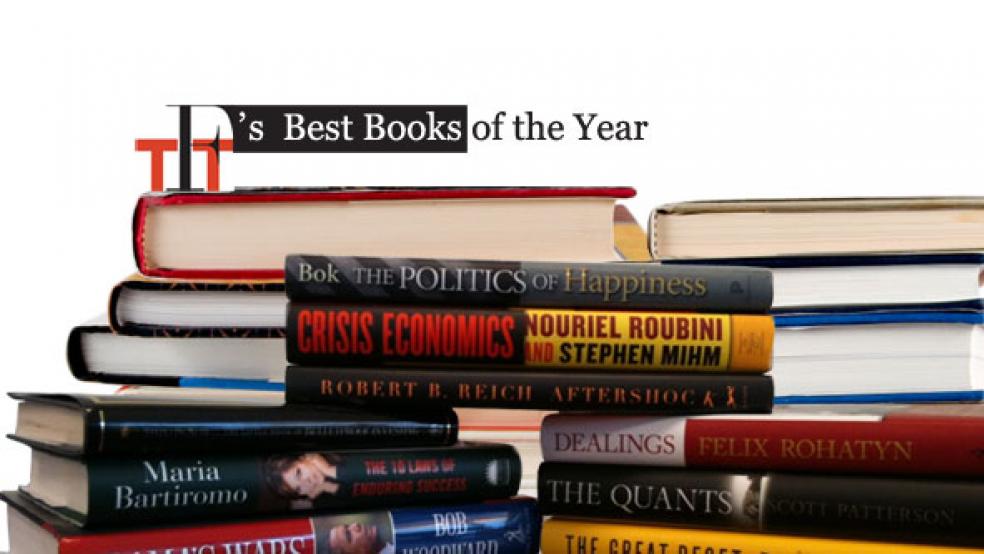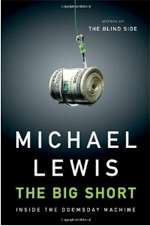
The Big Short by Michael Lewis (Norton). In an op-ed about a year ago in The New York Times, Michael Lewis wrote, “Americans enter the New Year in a strange new role: financial lunatics … On the subject of money even our harshest critics have been inclined to believe that we knew what we were doing. They watched our investment bankers and emulated them: For a long time now half the planet’s college graduates seemed to want nothing more out of life than a job on Wall Street.” Lewis’s brisk and colorful narrative about the crash of 2008 deconstructs more than the burst of the housing bubble. It challenges the reader to understand how big money can create the delusion of success and blind people in the process.
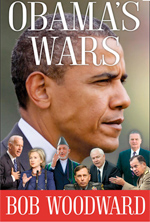
Obama’s Wars by Bob Woodward (Simon & Schuster). The Washington Post journalist and bestselling author’s talent for putting the reader right in the seat of the action is operating at full tilt. Woodward describes President Obama waffling in the role of commander-in-chief as he contemplates the war in Afghanistan: “I’m inclined to agree with the notion that we announce the third brigade. I’m more inclined to off-ramp rather than on-ramp. But if we are not seeing progress, we could off-ramp. Okay, thanks everyone. We need to get a decision.”
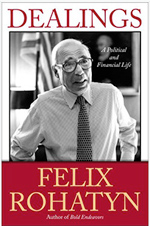
Dealings by Felix Rohatyn (Simon & Schuster). Rohatyn, who escaped Nazi occupied France as a boy and became what some have called the preeminent investment banker of his generation, gives an insider’s account of some of the biggest deals on Wall Street. The financier’s personal account of his years at Lazard Frères includes helping New York City claw its way out of bankruptcy, Steve Ross’ takeover of Warner Brothers, and his cautionary tale about the RJR buyout, about which he writes, “I witnessed the creation of a new corporate culture. The RJR-Nabisco merger set the tone: Huge deals were what mattered, while consequences for employees and communities were often overlooked.” His voice is clear, his text sharp-witted, and his insights always revealing.
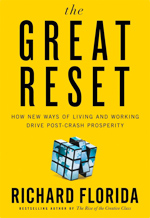
The Great Reset by Richard Florida (Harper). Mix the Great Recession with an economic historian’s sharp eye and you’ve got a nimble new analysis of how we bounce back. “A new geography of working and living will be our only path to renewed economic growth, confidence and prosperity,” says Florida. “The creative class is not content to sit quietly in their modest homes with the sensible car out front. They will continue to seek out restaurants and cultural events, they will take their families kayaking and skydiving or on ‘volunteer vacations,’ they will brew beer and start vegetable gardens and build furniture, powering new markets for new goods and services even as they adopt a more self-sufficient do-it-yourself ethic.”
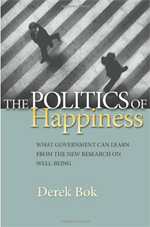
The Politics of Happiness by Derek Bok (Princeton University Press). This book offers a fresh look at the surprisingly not-so-elusive quality of happiness and why economic policy can make a difference where it counts. Bok has a smooth and convincing narrative style, and he weighs his arguments carefully. “Rising standards of living are not the only source of satisfaction with life,” he says. “Warm human ties are so important to happiness that it is worth considering whether policies exist that can do something to strengthen marriages and families in ways that will foster caring relationships and promote the healthy development of children.”
In The Weekend That Changed Wall Street: An Eyewitness Account (Portfolio), Maria Bartiromo, who covered the events of that September for CNBC from the floor of the New York Stock Exchange, captures the drama of that time but also takes us to today’s doorstep, where a sluggish economy, high unemployment, fear of rising health care costs and enormous uncertainty about the future of the country are the concerns of the day.
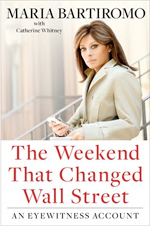
Bartiromo says, “Right now there are skill sets that are required to not only survive but thrive in the new normal. That new normal means lower growth levels in the U.S., tremendous population growth outside of the U.S., and demand for all sorts of commodities, like oil, gas, steel, iron ore, and gold, as well as soft commodities like water, agriculture, food. Things are changing so rapidly. The skill sets that we have relied on for decades may not be the ones we need going forward. Whole industries are turning upside down.”
And don’t forget:
- The Quants by Scott Patterson (Crown Business)
- Aftershock: The Next Economy and America's Future by Robert B. Reich (Knopf)
- The Little Book of Economics: How the Economy Works in the Real World by Greg Ip (Wiley)
- On the Brink: Inside the Race to Stop the Collapse of the Global Financial System by Henry M. Paulson (Business Plus)
- The Little Book of Bulletproof Investing by Ben Stein and Phil DeMuth (Wiley)
- Crisis Economics: A Crash Course in the Future of Finance by Nouriel Roubini and Stephen Mihm (Penguin Press)

